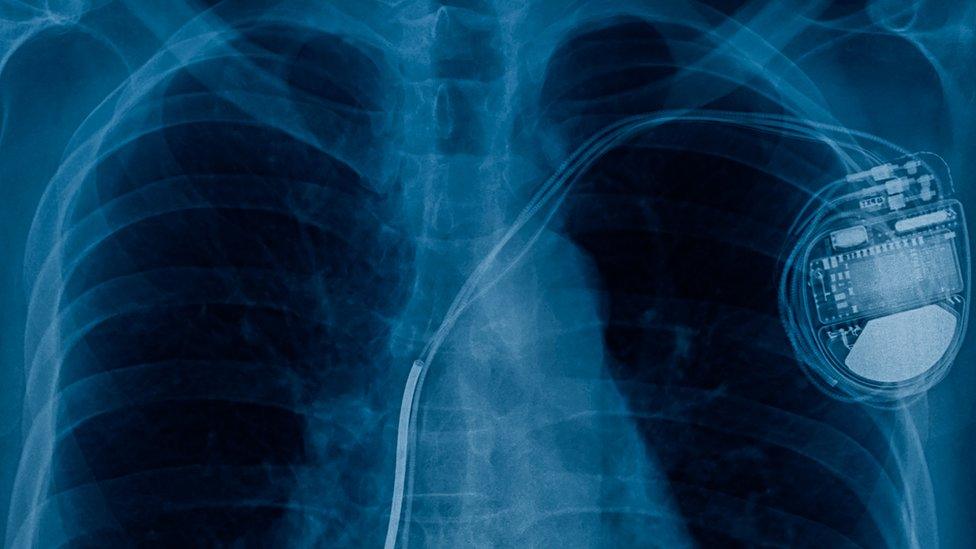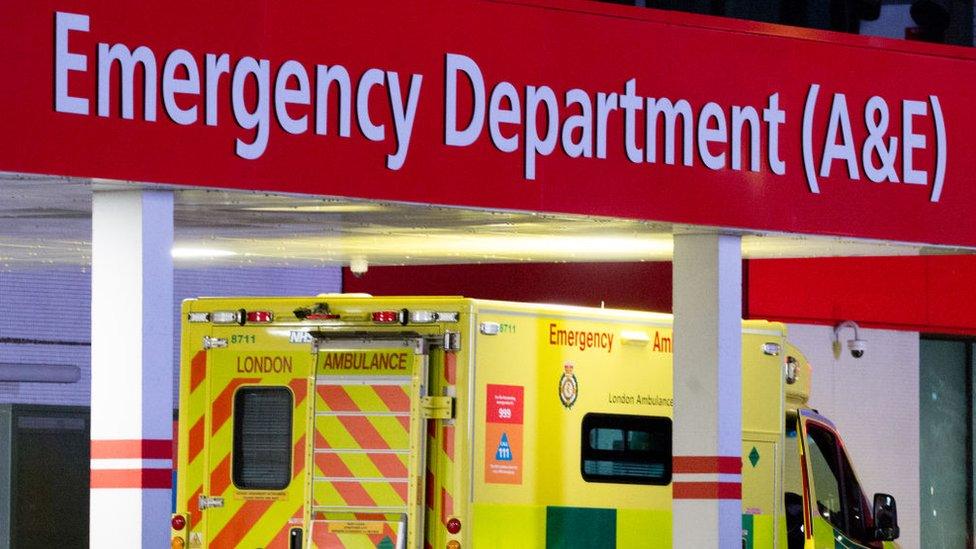Coronavirus: 5,000 'extra' heart deaths since March
- Published

Heart deaths are 4,785 higher than expected in England, according to new research.
Almost 5,000 more people have died from heart problems in England than would be expected since the start of the pandemic, the British Heart Foundation has warned.
Analysis by the charity found excess deaths are 7% above predicted levels.
It is urging people not to delay checks or treatment during the second wave of the virus.
NHS England said hospitals are redesigning services so that care can go ahead safely.
The BHF analysed mortality data in England between the start of the first national lockdown on 20 March and 30 October.
It found 73,799 cases where heart or circulatory disease was named as the underlying cause of death. That is 4,785 higher than the number projected by Public Health England over the same time period.
In around a quarter of the additional or excess cases, Covid-19 was mentioned on the death certificate, suggesting that in the majority of cases other factors were to blame.
Pandemic impact
The charity suggested some patients could be delaying treatment because they did not want to put pressure on the NHS, while others may have been concerned about visiting their GP or hospital for fear of catching the virus.
Pressure on NHS services because of the pandemic has also led to delays to some operations and routine heart care.
"Going forward, we have to learn the lessons from this pandemic," said Dr Sonya Babu-Narayan, associate medical director at the British Heart Foundation and a consultant NHS cardiologist.
"It's a new disease and it's understandable that we may not have anticipated every consequence. We wouldn't want the very people who need the NHS the most being the ones staying at home trying to protect it."
As the UK went into lockdown on 23 March, there was a sharp fall in people seeking help for suspected heart attacks.
Admissions for the most serious type of heart attack, caused by a complete blockage of an artery supplying part of the heart, fell by about a quarter, while rates of admission for heart attacks caused by a partial blockage of blood supply to the heart fell by 42%, according to research by the University of Oxford. , external
Don't ignore chest pain
Numbers improved over the summer but doctors fear a second wave of the virus and a second lockdown in England will again prevent some patients being diagnosed or treated.
The British Heart Foundation said it is important people seek medical advice if they have symptoms such as long-lasting chest pain or increased breathlessness.
Dr Nick Linker, national clinical director for heart disease for the NHS in England, said: "The NHS continued to offer treatment for urgent and routine heart problems throughout the pandemic and the number of people seeking emergency care quickly rebounded during the first wave, after some people had initial concerns about coming forward for care.
He added: "Going into the second wave, hospitals are continuing to redesign services so that care can go ahead safely, and our message remains the same: if you have symptoms, help us help you by coming forward so we can get you the care you need."
- Published15 October 2020

- Published15 July 2020

- Published5 June 2020

- Published14 May 2020
